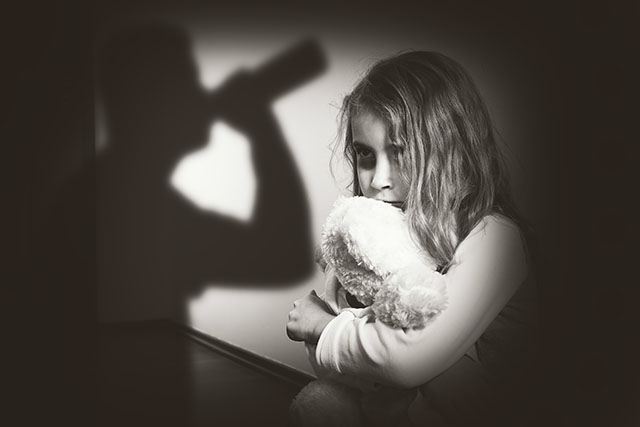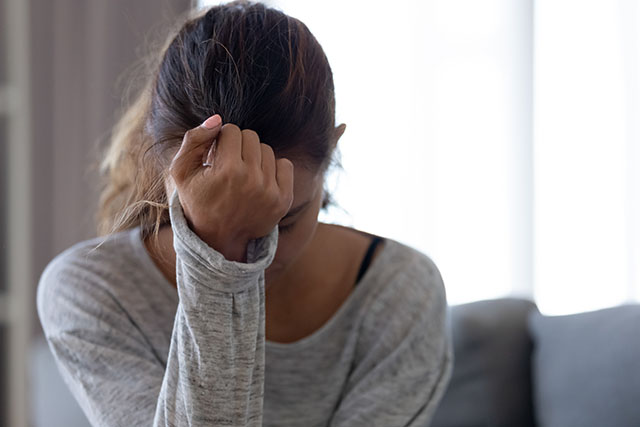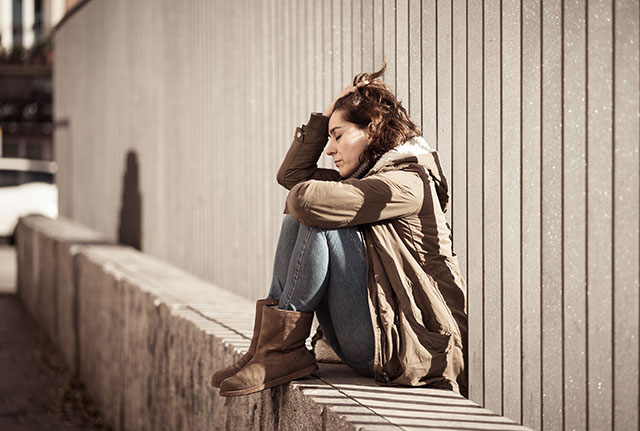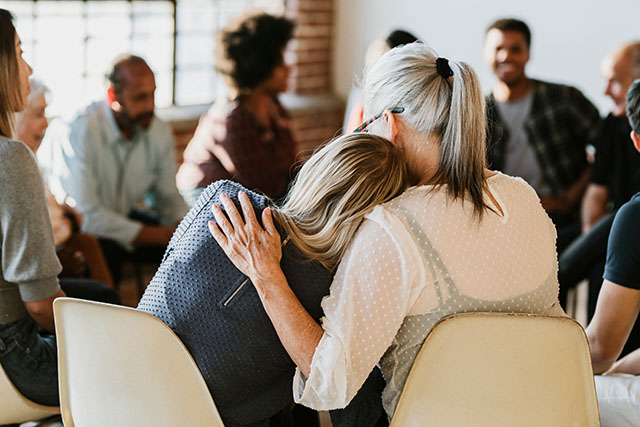Surviving Trauma
In this post, we share one incredible man’s personal journey of surviving abuse, trauma, and living as a product of incest. Some readers may be triggered by this content and reader discretion is advised.
Speaking Your Truth
A traumatic event is a very upsetting experience that goes beyond a person's normal ability to deal with it and hurts them emotionally, mentally, and physically. Traumatic events in childhood can be caused by things outside the family, like a car accident or a natural disaster. Danger might sometimes, however, arise from inside the family. Such traumatic events can include the sudden death of a loved one, abuse, or violence in the home.
In a recent podcast episode, I spoke with Lynn Everard, a Speaker, Transformational Facilitator, Life Guide, Author, Coach, and Poet. He shared his journey of surviving abuse and living as a product incest.
I was humbled to hear Lynn's story and so in awe of the work he does to support trauma survivors.
I believe that some people can heal from their trauma and never develop PTSD. However, many trauma survivors may have trauma symptoms long after the event. Studies show that some people are at a higher risk of PTSD than others. For example, people who were physically or sexually abused as children are more likely to get PTSD if they experience a traumatic event as an adult. Moreover, women face twice the risk of getting PTSD as men.
“There are wounds that never show on the body that are deeper and more hurtful than anything that bleeds.”
- Laurell K. Hamilton
Abuse in the family is a type of trauma that may leave severe and long-lasting scars on people harmed by those who were supposed to love and protect them. Getting up the courage and strength to talk about what happened to you could help you process your trauma and begin the healing journey.
Trauma Bonds
Affection is an innate human need. This need is compelling in childhood when children desire attention and love from their caregivers. A child needs to connect even when the caregiver is aggressive or cruel. Trauma bonding, which develops as a result of traumatic childhood events, can substantially influence an individual's mental health and adult relationships, frequently leading to identity issues, mental health concerns, and dysfunctional relationships later in life.

However, abuse in childhood is sometimes disguised as care and affection, so the child learns to link love with abuse. Still, they may sense something is fundamentally wrong, feeling guilty for allowing such interaction to happen. But to protect themselves and preserve the image of a good, caring parent, the child may suppress their feelings of hurt, fear, and anger, instead internalizing that something is wrong with them.
According to experts, trauma bonding develops in childhood due to repeated abusive or traumatic encounters with the caregiver. This pattern of connection is then internalized, affecting all future interactions.
The Power of Secrets
Secrets wield enormous power. Every family has its own set of secrets. However, according to Lynn Everard, an author and speaker, families with a history of abuse and trauma tend to live by an unspoken agreement to keep the secret. The abuser usually keeps the family in fear for a long time because the people who have been abused think they have to keep the secret to themselves.

According to Everard, maintaining the secret preserves the abuser's level of control and the survivor's shame for "letting it happen”. In addition, survivors are often afraid of being judged and worried about how people will see them once the truth is exposed.
Unfortunately, not the abuser but the person who has been abused is often blamed for dishonoring the family when they find the courage to tell the truth and the family the secret. So, the secrets keep survivors trapped, producing mental health distress like anxiety, sadness, and post-traumatic stress disorder (PTSD).
Overcoming Shame FROM TRAUMA
Shame is a self-conscious feeling that involves seeing yourself as unworthy, dishonorable, or lacking. People often mix up shame and guilt because the two feelings are often linked. But guilt is always about behavior when we realize we did something wrong. Shame, however, doesn't distinguish between a behavior and the self. So, when we feel ashamed, we think something is fundamentally wrong with us.
Shame comes from the idea that you are, at your core, flawed or not good enough. People who were abused as children frequently battle with enormous shame throughout their lives since they absorbed the shame and guilt of the adult who harmed them, feeling that the abuse was their fault.

To become authentic and accept ourselves, we need to speak our truth. Only by doing your inner child work and coming to terms with what you've been through will you be able to forgive, self-forgive and heal.
Forgiveness AND TRAUMA
Lynn Everard talks about forgiveness as a two-step process that begins with forgiving oneself and then recovering one's innocence. You return to yourself as an innocent kid when you restore your innocence. This inner child work can assist you in healing guilt, so you don't have to carry it with you after you've completed the forgiving process.
Anger and resentment don't solve the problems that caused them, and they never make you feel better. When you decide to speak your truth, you might feel empowered to let go and allow resentment and anger to start fading away.
However, forgiveness does not mean forgetting. When you forgive someone, it doesn't change the fact that they did something to hurt you. Instead, forgiveness means you're willing to let go of the past and begin healing.
The Takeaway
Years of research have confirmed that unresolved trauma can lead to mental health distress such as anxiety, depression, addiction, and post-traumatic stress disorder (PTSD). It can also cause various physical symptoms like digestive issues, breathing problems, chronic pain, trouble sleeping, and more.
An unhealthy attachment to abusive or cruel caregivers can make you feel unsafe, impacting your health and relationships later in life. Often, this cruel cycle continues, until the abuser passes away, or the abused finds the courage to speak out.

Through forgiveness, survivors can begin to heal their emotions. As a result, self-forgiveness and forgiveness can reduce anxiety, lower your risk of depression and PTSD, and enhance your relationships.
Although forgiveness may seem inconceivable at first, it empowers survivors to let go of the guilt and shame they may be experiencing, to finally free themselves and begin healing.
Secrets keep survivors trapped and the abusers in a position of power. So, speaking your truth and bringing the secrets to light could save your life - just like it saved Lynn Everard.
People like Lynn, who are survivors themselves, provide help and support to other survivors, which can be the first small steps in processing this unspeakable trauma.
https://www.camh.ca/en/health-info/mental-illness-and-addiction-index/trauma
https://www.ncbi.nlm.nih.gov/books/NBK207191/
https://pubmed.ncbi.nlm.nih.gov/8193053/
https://www.nfa.co.uk/story/story_category/what-is-a-trauma-bond-and-how-can-it-affect-children-and-young-people/
https://www.masterclass.com/articles/inner-child-work
https://www.mayoclinic.org/healthy-lifestyle/adult-health/in-depth/forgiveness/art-20047692
https://thejornipodcast.com/episode-21-surviving-abuse-with-lynn-everard
